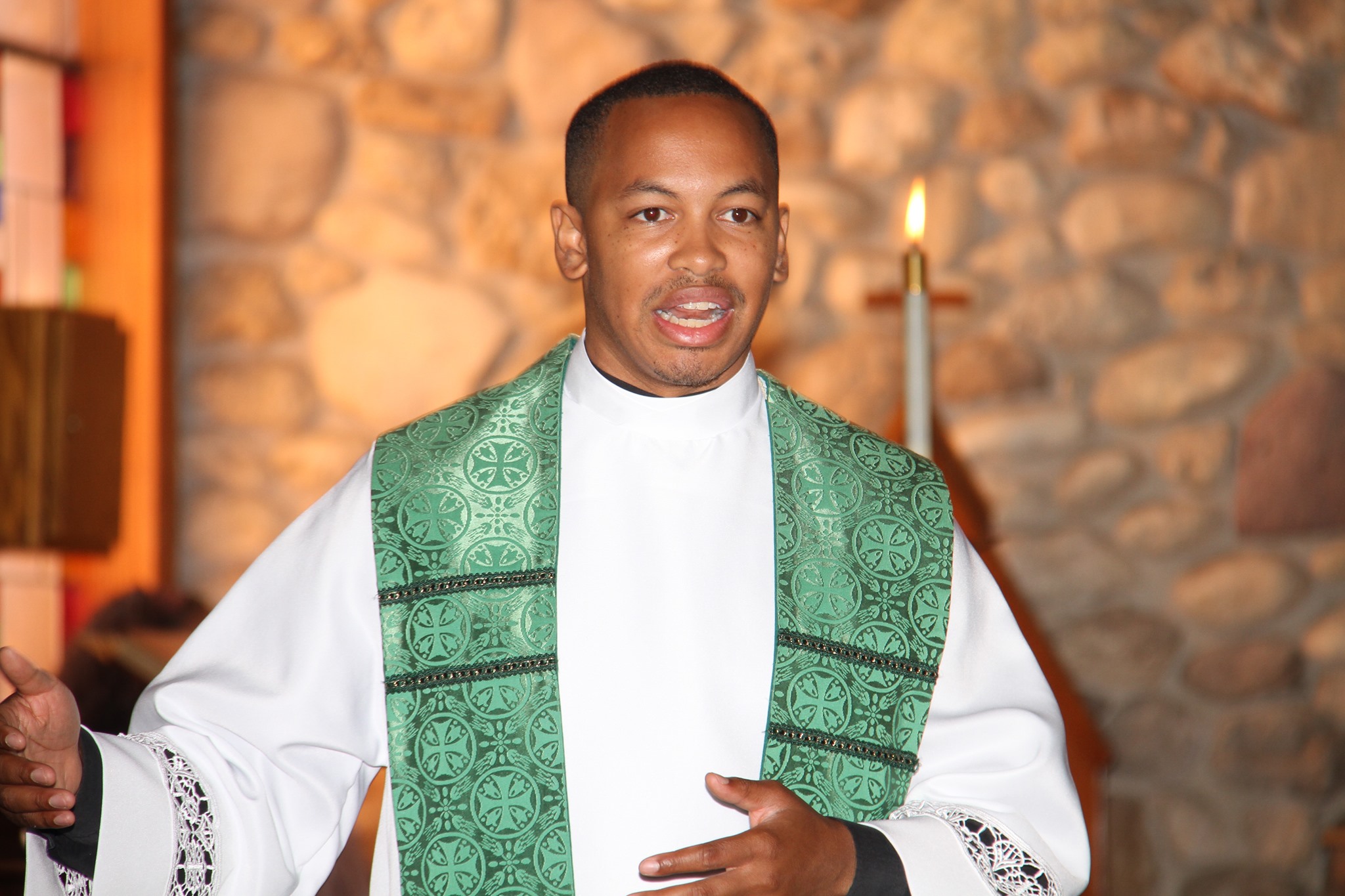

As the Campus Missioner for Houston Canterbury, a ministry of the Episcopal Diocese of Texas, Reverend Charles Graves IV works to engage college students across several campuses in Houston. Appointed by Bishop Doyle in 2019, Graves spends time at the University of Houston, Texas Southern University, Houston Community College, and the University of Houston-Downtown.
Being a priest was not his first plan, Graves notes. He’s always had a keen interest in politics, and at the age of 16 he began working on political campaigns in Baltimore, where he grew up and eventually majored in political science at Hampton University. In his first job out of college, he managed the campaign of City Council candidate (and Baltimore’s current mayor) Brandon Scott. He then worked for Ohio Senator Sherrod Brown in his Washington office.
“I realized pretty quickly that as much as I enjoyed working in politics, it did not so much draw me closer to my relationship with God,” Graves laughs. Between writing negative ads and dealing with the dysfunctional Congress, Graves began to wonder if he could make a more positive impact elsewhere. “I’m still kind of an armchair political pundit, and will talk politics with anybody who will listen. But I started to discern a different path for my life.”
Graves’ family moved to Baltimore when he was 3 years old. As active Episcopalians for several generations, they attended St. James Church, a congregation led by a young priest named Michael Curry—who is now the presiding bishop of the Episcopal Church. Curry was Graves’ parish priest until he was about 11 years old, and their families have maintained a friendship for nearly 30 years.
For a predominantly white denomination, it was unusual for a young Black man to grow up Episcopalian with a Black priest to look up to. Even more unusual was growing up in a congregation where the clergy embraced their LGBTQ members. When Graves came out at the age of 17, he was welcomed by his family and congregation. “I meet young people every day for whom the church where they grew up was not a safe place,” he says, underlining the uniqueness of his experience.
But there were times when Graves had to be discreet about his identity, for his own safety. “Although I had come out in high school, I had to go back into the closet for three years while I was in college,” he explains. “The reason I finished in three years was because Hampton University was not a good place to be a queer student.” He took extra courses each semester and enrolled in summer sessions to graduate as quickly as possible. Still, he maintained his faith during those years and managed to find a community that cared for him. “But I didn’t have a campus minister who was LGBTQ-affirming.”
When Graves became disenchanted with politics, he turned once again to his faith. “I started to look back at all the people who had been telling me for years, ‘You’re going to be a priest one day. When are you going to seminary?’ I never listened or believed it, but I began to pray over it.” Eventually, he began to discern that he did have a calling to the priesthood and enrolled at the Yale Divinity School.
When asked if he sees a main theme to his ministry, Graves doesn’t hesitate to answer. “A big part of my ministry is to the LGBTQ community So many of our students are LGBTQ, or just want to be part of a faith community that is LGBTQ affirming.” As an example of this need, he notes that at UH alone, there are about 30 different Christian student organizations, but only two other groups are LGBTQ affirming—the Evangelical Lutheran Church in America’s HouMin ministry, and the United Campus Ministry, which is a collaborative ministry of the Presbyterian Church USA, the Christian Church (Disciples of Christ), and the United Church of Christ. The leaders of all three groups coordinate their efforts, most notably by rotating days when they are on the various campuses.

Graves routinely interacts with students who are disillusioned by the church, are critical of LGBTQ inclusion, or who didn’t grow up in a faith tradition and are curious about religion. Graves welcomes engagement from all these groups. “I think people who are outside the church know a lot better than people who are inside the church about what the gospel tells us,” he says. “There’s this whole perception in the church that people are leaving the church because they don’t understand God. I think [those people] understand God better than we do, [and they also] understand that we, as a whole, as Christians, have not lived into who we are called to be.”
Reflecting back on his college days, Graves tries to offer students something he missed in his own student experience. “It’s just the most amazing privilege to provide what I wish I could have had,” he concludes. “Especially to queer students—to provide for them a spiritual home, where they can be loved and prayed for and where they can bring their whole selves to the table, whatever that looks like.”
For more information on Houston Canterbury, visit houcan.org.











FB Comments